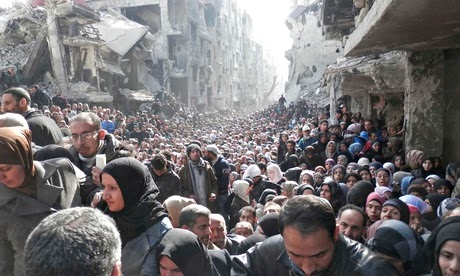The Happiest Cities
 |
| Provo looking towards the mountains-from utahvalley.com website |
miriadna-e800.jpg) |
| Genoa Bay - from miriadna.com website |
Israeli-Palestinian Peace Process
John Kerry met with Palestinian leader Mahmoud Abbas in Amman, Jordan, in an attempt to rescue the faltering peace process. As reported in the The Guardian on March 26: Kerry arrived in the Jordanian capital hours after an Arab League summit in Kuwait released a statement emphatically declaring that Arab leaders would never recognise Israel as a "Jewish state", a key demand Netanyahu has made of Palestinians. Increasingly harsh rhetoric is coming from both sides centered around Israeli settlement building on Palestinian land and the release of Palestinian prisoners held by Israel. After months of deadlock Kerry has given up hopes of brokering a deal and is instead concentrating his efforts on convincing the sides to agree to extend talks. Otherwise, the negotiations are planned to end in April.
Iran Nuclear Talks
Writing for the Carnegie Endowment for International Peace and Arms Control Today, George Perkovich recommends the Obama Administration and Congress divert a fraction of the time and energy now spent debating whether to add sanctions on Iran to the more difficult challenge of figuring out how to cooperate in removing them if a final agreement is reached. Perkovich notes that the US and its negotiating partners seem to have reached a general understanding regarding key components that should be included in a satisfactory deal. Iran must significantly constrain its activities related to uranium enrichment, revise plans to build a heavy-water reactor, resolve outstanding questions with the IAEA about Tehran’s past activities, and implement additional protocols to strengthen the IAEA’s ability to carry out inspections in the country and...[to] require Iran to provide design information as soon as decisions are made to construct a nuclear facility. To these Perkovich adds four less talked about components that would result in a well-rounded nuclear deal: constraints on enrichment activities, irreversible safeguards, circumscribed R&D, and new transparency and verification measures. These measures would help build confidence “that under no circumstances will Iran ever seek or develop any nuclear weapons” and thus open the way to the final removal of sanctions.
Surveillance Reforms
President Obama confirmed on Tuesday March 25 that US plans to end the NSA's bulk collection of telephone records. The House Intelligence Committee is close to an agreement with the White House to revamp the surveillance program. The bipartisan USA Freedom Act, under consideration in both the House and Senate, would, in addition to ending bulk record collection, put limits on Patriot Act practices targeting people in the US, require the government obtain a court order before using information about Americans collected during foreign intelligence operations, and create a public advocate to advise the secret surveillance court. [ACLU webpage]
The Guardian was instrumental in bringing NSA whistle-blower Edward Snowden's revelations to the world's attention. A Guardian March 25 article gave Snowden's and Obama's comments on the surveillance reforms: In a statement through the American Civil Liberties Union, Snowden said the plans outlined by Obama were a “turning point”...Snowden said none of these reforms would have happened without the disclosures he precipitated. “I believed that if the NSA's unconstitutional mass surveillance of Americans was known, it would not survive the scrutiny of the courts, the Congress, and the people.” ...Obama said he believed that reform proposals presented to him by the US intelligence agencies were “workable”, and would “eliminate” the concerns of privacy campaigners. “I am confident that it allows us to do what is necessary in order to deal with the threat of a terrorist attack, but does so in a way that addresses people's concerns."
[The Guardian, March 25]
Venezuela
 |
| "Chavismo" pro-government rally in Caracas (Feb 2014) (axisoflogic.com) |
Links
Lists of Most and Least Happy US Cities [Business Insider, March 25]
The Top 10 Places in the World for Beautiful Weather [care2.com based on March/April 2014 Weatherwise Magazine article]
 |
Viña
del Mar, Chile - #1 for best weather (care2.com)
|












